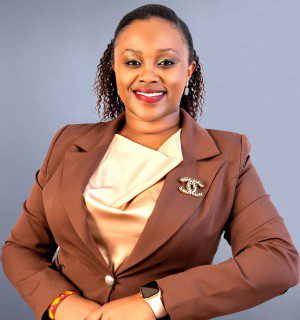News and Insights
Addressing Healthcare Misinformation in Africa: The Role of PR and Communications
September 5, 2025
Healthcare misinformation in Africa is not a side issue; it is a public health threat. From myths around vaccines to confusion about reproductive health or new technologies like AI-driven diagnostics, falsehoods spread quickly and can have devastating consequences. A recent study on pandemic preparedness in West and Central Africa highlights how misinformation around COVID-19 significantly undermined the use of research evidence in policymaking, reinforcing how easily false information can derail health interventions. The real challenge isn’t just correcting misinformation when it happens, but building stronger, more trusted communication systems that prevent it from taking root.
At the Africa Global PR Week event, one thing became clear: communicators are not just observers in this fight, we are frontline players. The way we frame stories, the platforms we use, and the narratives we choose to amplify directly shape how communities perceive healthcare.
The Double Reality of Access
Africa is a continent that is both digitally savvy and digitally excluded. On one hand, there’s a generation of young, tech-first Africans using social media and AI tools to access and share information. On the other hand, large parts of rural Africa still rely on radio, television, and community networks as their main source of news.
This dual reality means that any strategy to tackle healthcare misinformation cannot be one-size-fits-all. Digital campaigns are essential, but mainstream media remains just as important. If misinformation can spread in both spaces, then so must truth.
Technology and the Human Element
Technology is transforming communications in Africa, and AI is already part of how agencies and communicators work. Sentiment analysis, translation across African languages, and even tools that detect misinformation trends are all promising. But there’s also a risk: if we rely too heavily on AI to tell our stories, we may lose the human empathy and cultural nuance that make communication effective.
That human element, the ability to connect, to listen, and to tailor messages with empathy, is what makes a difference in healthcare communications. Facts alone don’t change minds; trust does. Trust is built when people feel that messages are created for them, in their context, by people who understand them.
However, trust doesn’t appear overnight. It’s built slowly, in the stories we tell and how we share them. In the face of misinformation, that means reaching people where they are, whether through familiar traditions, digital platforms, or everyday conversations. It also means making truth resonate as powerfully as the falsehoods competing for attention.
Owning Africa’s Story
One of the strongest takeaways for me is the need to stop outsourcing Africa’s story. Too often, the continent is framed as a passive player in global health conversations, a place of crises rather than solutions. Yet the future of healthcare globally is tied to Africa. According to the UN, Africa’s population is projected to double by 2054, reaching 2.2 billion people, with more than half under the age of 25. That means one in four people on the planet will be African. This demographic shift represents immense potential, but also tremendous risk if misinformation is allowed to spread unchecked in such a young, fast-growing continent.
For that future to be shaped positively, Africa’s health story must be told authentically by Africans in our languages, with our perspectives, and in ways that resonate with our communities while also speaking to the world.
The Way Forward
The fight against healthcare misinformation is not one group’s responsibility but a collective one. Governments, media, health experts, and communicators all have a role to play in shaping trusted, accurate, and accessible narratives. If we succeed, we not only protect communities today but also ensure that Africa’s health story is defined by resilience, innovation, and solutions, told with a voice strong enough to command global attention.
